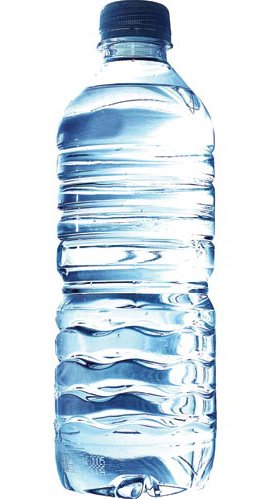Contrary to popular belief, it is true you don't have to starve yourself and by eating more frequently you can actually lose weight, the healthy way. That's exactly what you want to hear, right? Well it's true. I'll explain.
The Perfect Diet ///
There's so much emphasis these days on finding that perfect diet or ideal meal replacement or just simply curbing those food cravings when there should be much more on educating ourselves on proper nutrition. Meal replacements and protein shakes can play an important role in our diets but they are not made for us to live on alone. Sure it would be easier if we could just find that magic formula out there and not have to worry about food and know that we are doing the best for our bodies but there's not, as of yet anyway. Besides, what fun would that be for our taste buds?
One's diet should not mean to starve your self and for too many people out there it does. By depriving your body of the essential nutrients that food supply us with you are, without a doubt, hurting that body you have worked so hard for. Without food, you may soon find yourself lacking energy, concentration, focus, and desire not to mention developing what could become some serious health issues. Of course, exercise, activities, and genetics also play an important role but eating properly and often is crucial to weight control, keeping energy levels up, and overall health.
We all know that by consuming more calories than you need, you may gain weight and by eating fewer calories, you may lose a few pounds. So, how do we know what diet is right for each one of us? Understanding your own body is so important to achieving your desired weight and when your body tells you that it's hungry then you need to feed it. Learn to listen to your body, don't wait until you are just so hungry that you gorge on just about anything for that will only result in poor choices and overeating.
Turning Down Your Natural Metabolism ///
What happens when we skip meals and deprive our bodies? Well, when you allow yourself to starve, your body will deplete nutritionally in many ways and this can cause the body to fall into a desperate state, which will in turn slow down your natural metabolism. You will not be able to breakdown food as quickly and you will begin storing calories and fat whenever and wherever it can. When you do finally eat, you may begin to gain weight and pack on those unwanted pounds in unwanted areas. So think about that the next time you decide to skip a few meals. Make sense?
In other words, your body will go into a sort of hibernation if you will, similar to a bear going into a long, winter hibernation. Then your body will begin preparing itself with the fear that you aren't going to feed it for awhile, it will then want to store whatever it gets as soon as it gets it. Your body reacts and goes into a survival mode storing food in fear of starvation again meanwhile, your metabolism decreases so that it won't burn off the energy so fast.
Then if that's not enough, when your body runs out of fuel to burn it will start taking it from other areas like your muscles, this is referred to as a catabolic state. That's why you will find that these crazy crash diets don't work and to top it all of with they can be detrimental to your health in the long run. It all sounds good in the beginning, you may drop that unwanted weight quickly but as soon as you start eating again lookout you are guaranteed to gain it all back and then some!
Eat, Eat, Eat ///
So, In order to maintain your ideal weight and increase your metabolism you need to eat more often. Eating should be looked at as a good thing not as a bad thing and food is here for us to enjoy, that is as long as you are making smart meal choices. You can gain control of your weight and health just as simple as learning how to plan a healthy meal program that is best suited for you and your families needs.
Planning meals ahead is the key here and they do take some time on your part but knowing that you are improving your overall health, the right way, should be all the incentive you need.
Knowing what you will be eating from the moment you get up until you go to bed can make all the difference of a successful day or a not-so-successful day. Like everything in life, simple planning can bring you out of the doldrums and get you back onto the right track and eating delicious food that you never thought possible!
Simply take the time to start planning those mini meals on a daily basis. Eat more, not less, of the right food and be sure to drink plenty of water. Combine that with the proper exercise program and you are sure to see and more importantly, you will feel the desired results you have been looking for. This may sound like a lot to do, at first. Some of you may be thinking that there's no way you have time. There is a way and like anything in life, its all relative to the importance you put on your health. Proper diet is so crucial to all we do. The benefits will be you and your family's health, today and in the future. You will see and feel the results just like you do in your training. What you put into it you will get out of it. Be all you can and feel the difference with proper nutrition, start meal planning today.
Top Ten Tips For Successful Weight Management ///
1 /Journals
Keep a journal of all you eat and drink each day and also how you feel physically, emotionally, your energy level, attitude, etc. This will help access what foods attribute to what moods and you may discover a few food dos and don'ts in days to come. Generally, whatever you eat today will effect you in the next day or two. It can also help a dietician evaluate your eating habits and help you fine tune them.
2 / Plan Meals
Plan and prepare your weekday meals ahead of time; write them down. (Sunday's are usually good days for this, you can plan, prepare and store for the following week) Try to make double when you cook or prepare a few meals at once then divide it into your mini-meals so that you will have it for the following days. Invest in reusable, plastic meal containers, they work great for meal planning!
3 / Eat Frequently
Eat more often by eating frequent sensible mini-meals (every 3 hours) and omit any large meals.
4 / A Cooler To Go
Pack a small cooler to go each day filled with your meals already prepared in plastic containers. Throw in some fresh fruit, yogurt, rice cakes, cheese cubes, raw veggies.
5 / Don't Overeat
Avoid overeating. Only eat until you feel content not overstuffed.
6 / Protein Shakes
Avoid hunger pains at all cost. Don't wait too long in between meals. Take along a few protein shakes to fill any voids.
7 / Hydrate

Drink plenty of water. This will keep your body hydrated, which is crucial to maintaining excellent health and it will also lesson those hunger pangs. A recommended ten to twelve 12-ounce glasses daily, more in the summer months or if you are super active especially outdoors.
8 / No Fast Food
Avoid eating out as much as possible. It will not only save you money but it will limit the temptation of making poor choices.
9 / Give Yourself A Break
Allow one cheat day a week to enjoy your absolute favorite foods, guilt-free. Don't go crazy now but enjoy your favorite dish and/or snack, mini-version of course. Eat it early on in the day so that your body has a chance to burn it off before resting.
10 / Cut Fats and Carbohydrates
Reduce simple or refined carbohydrates and fat intake. Avoid altogether or lesson the intake of dairy products, fried foods, flour, pasta, breads, refined sugar, sodium, and food containing preservatives.
Important: Even though we are each genetically different most people can still learn how to stabilize and maintain our metabolism with proper nutrition. Because each of us is so different, I also suggest discussing your diet with a registered dietitian to insure the most effective and healthy diet for you and your family.
Figuring Your Daily Calorie Allotment ///
To get a rough estimate of how many calories you need in a day to maintain your present weight, multiply your weight by 13, if sedentary, and by 15, if moderately active. You will need to add more calories for rigorous exercise. To lose or gain weight, subtract or add 500 calories, this can be done through diet and/or exercise.
|
Women
|
|||
|
Age
|
Low Activity
|
Moderate Activity
|
High Activity
|
|
19-24
|
1,800
|
2,200
|
2,600
|
|
25-50
|
1,800
|
2,200
|
2,600
|
|
51+
|
1,700
|
2,000
|
2,400
|
|
Men
|
|||
|
Age
|
Low Activity
|
Moderate Activity
|
High Activity
|
|
19-24
|
2,300
|
3,000
|
3,700
|
|
25-50
|
2,300
|
3,000
|
3,800
|
|
50+
|
2,000
|
2,600
|
3,200
|
*This chart is according to The American Dietetic Association.
*Remember that all calories are not created equal. You must cut the fat! Fat contains more than double the calories of protein and carbohydrates and your body handles its breakdown differently. Low fat diets are best to control your weight because they contain fewer calories. In addition, they discourage the accumulation of body fat.
